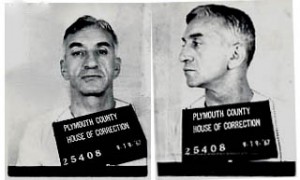Yesterday I saw Jane Campion’s movie “Bright Star,” about the doomed romance between the poet John Keats and Fanny Brawne, and I liked it very much. How could I not like it? The romantic hero is a writer. You don’t see that very often.
Writers make bad film protagonists because the real work of writing is unfilmable. A writer at work is doing nothing more picturesque than scribbling on a pad or, worse, staring into space. The “action,” such as it is, takes place in his mind. So the struggle to create has to be extroverted, acted out: the writer balls up a piece of paper and flings it across the room in frustration. Personally, I have never balled up a manuscript page and flung it across the room. I work on a computer. Most writers do now, which should spell doom for this particular film cliché, a blessing for which we should all be thankful.
There are good movies about writers, of course, but they are generally not about the work itself. Successful writer movies — “Capote,” for example — include virtually none of their subjects’ actual prose. They are not about what’s inside the books; they are about the struggle to make the books.
This is why “Bright Star” is such an exceptional writer movie. Keats’s poetry is a constant presence in the film. It is read aloud by characters within scenes and in voice-over. The end credits alone, in which the actor Ben Whishaw reads the “Ode to a Nightingale” in its entirety, is worth the price of the ticket. Keats’s letters, too, are woven into the dialogue. The film is about a mood, and it is the same mood that Keats’s poetry captures so well — gloom, melancholy, languor, longing. The movie and the poems are written in the same key, so the poetry actually enhances the film just as the usual movie devices do, cinematography, music, and so on.
It is surprising that there are so few movies about poets. Off the top of my head, I can’t think of a single one. But poetry and film work well together. E. L. Doctorow has written,
Film de-literates thought; it relies primarily on an association of visual impressions or understandings. Moviegoing is an act of inference. You receive what you see as a broad band of sensual effects that evoke your intuitive nonverbal intelligence. You understand what you see without having to think it through with words.
Yes, all right, it is a visual medium. But poetry does something similar. It “literates” emotion, it evokes moods without ever quite naming them. Sometimes it describes states of mind that have no name, that never coalesce into definite thoughts, and therefore can’t be thought through, only felt. You can understand a poem without quite being able to put its meaning into words.
At several points “Bright Star” seems about to tip over into preciousness, as so many period costume dramas do. Ben Whishaw, as Keats, is delicate looking. He stares dreamily at flowers or coughs with tuberculosis. (It is really Fanny’s movie. If there is any justice, the role will make a star out of Abbie Cornish.) What makes him affecting is the poems. No wonder Fanny fell for him — he’s John Keats. Whatever flaws the movie may have, I can’t think of any other that incorporates a writer’s actual words so much and so well.
